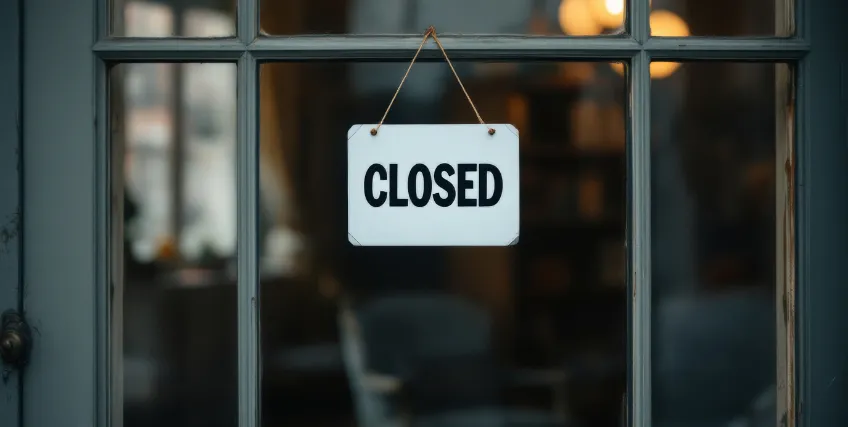How Much Is Liability Insurance for a Small Business
February 27, 2025 | Last Updated on: March 03, 2025

Liability insurance for a small business owner is a crucial safeguard. It offers financial protection against claims involving property damage, bodily injury, or other losses.
Commercial insurance covers people and property, including legal fees and settlements if the business is found liable.
Unlike other business insurance policies or general LLC coverage, liability insurance directly compensates third parties rather than just the policyholder. In this article, we will learn more about how much liability Insurance costs for a Small Business.
Why do you need small business liability insurance?
When entrepreneurs consider insurance, their first question is often, "Am I required to buy business insurance?" The answer isn't as simple as yes or no. There are various types of liability insurance for a small business, and while many are strongly recommended, only a few are legally required.
Your specific insurance obligations largely depend on the state where your business operates. Most U.S. states mandate workers' compensation insurance for businesses with at least one employee. Additionally, having a certificate of insurance can be essential for securing contracts or leases, as it serves as proof of coverage.
Beyond legal requirements, a comprehensive business insurance policy can protect against unexpected risks, such as property damage or liability claims. Some policies also include business income coverage, which helps replace lost revenue if your operations are disrupted.
To determine your state's specific insurance requirements, consult your local Small Business Development Center (SBDC) or your state's Department of Revenue, or use an online assessment tool like The Hartford's business insurance quiz.
Even if liability insurance for a small business is not required by law, there are many other reasons to purchase a business insurance policy. By the time your business is ready to open for operations, you’ve already invested a lot of time, money, and, more importantly, innovative business ideas. Purchasing the right insurance policies as a startup owner will protect your business and your finances from substantial financial losses and legal fees. However, if unsure it's best to consult a professional to ensure full compliance.
Financial health
Safeguarding your business assets, operations, and personal assets from the financial strain of a lawsuit is the most important reason to purchase liability insurance for a small business. Lawsuits may come from customers claiming medical expenses if they sustain an injury at your business or other legal accusations. Even if you are sure that your business is not at fault, the costs of defending your business in a legal dispute could leave you in financial ruin and even result in being forced to file for bankruptcy.
Commercial leases
If your business plan includes leasing commercial space for a retail store or restaurant, offering customer services, using it as an office space, or even for industrial storage, then you may find many commercial landlords have their own insurance requirements for tenants. Most commercial leases include insurance requirements that require general liability insurance for a small business. This protects your business and the property owner in the event of an accident or legal dispute.
Professional licenses
Specific industries require a professional license, including real estate brokers, dental service providers, massage therapists, financial advisors, general contractors, accountants, and salon owners. Before opening a business, liability insurance for a small business in these fields must obtain the necessary licenses and permits.
Eligibility requirements vary by industry, but many licenses require businesses to have insurance or secure coverage within a specific timeframe. For example, companies that sell alcohol must carry general liability insurance coverage to obtain a liquor license and protect against alcohol-related incidents or legal claims. Additionally, those offering professional services may need specialized insurance to comply with industry regulations and safeguard their business from potential risks.
New business
If you rely on government contracts or partner with large corporations to earn an income, you may need general liability insurance for a small business to be hired or to have an advantage over the competition. Some examples may be general contractors bidding on construction jobs or certified public accountants (CPAs) working with government agencies.
What does liability insurance cover?
What is covered by liability insurance for a small business typically depends on the types of business insurance you’ve purchased and the inclusions you elected when purchasing the policy. Most general liability insurance for a small business covers the following scenarios and more. Still, you can learn more about what is and isn’t covered by looking at the different types of coverage and reviewing your policy documents.
- Physical injuries occurring to customers while in your store or benefiting from your services, like a slip and fall claim
- Damage to a client’s business or personal property while performing contracted duties
- Financial consequences to clients or customers because of your products or services
The exact costs and expenses the insurance company will cover will depend on the policy, but typically liability insurance for a small business covers court costs, legal representation, court-ordered judgments, and settlements. Liability insurance for a small business does not cover contractual liabilities, criminal prosecution costs, or intentional damage. You can find the dollar amount your insurance policy will help with by noting your per-occurrence limit, the amount paid per incident, and the aggregate limit, the maximum the provider will pay during your entire policy period.
Most entrepreneurs think of general liability policies when discussing the different types of coverage available through liability insurance for a small business policy. However, several other types of liability insurance coverage must be discussed before selecting the right policy to get the best general liability insurance for a small business.
Commercial general liability insurance
Liability insurance for a small business products help protect small businesses from third-party claims related to property damage, bodily harm, or personal injury. The cost of small business liability insurance covers expenses such as litigation, bonds, settlements, and court-ordered judgments resulting from damages to another person or property.
If you operate your business from a leased office or retail space, your landlord will likely require you to have general liability insurance for a small business. It’s best to get liability insurance for a small business quote to determine your coverage costs, as insurance premiums vary based on factors like business size, industry, and risk exposure.
Errors and omissions insurance
In some industries, errors and omissions (E&O) insurance may also be called professional liability insurance or malpractice insurance. This policy covers the business owner in case of a mistake, oversight, or professional failure.
Commercial auto insurance
Liability policies on commercial vehicles are considered a type of liability insurance for small business coverage, even though they are sold separately from most general policies. Auto insurance will protect the company from financial devastation if the business vehicle is in an accident and the business is sued.
Employer’s liability coverage
Employer’s liability insurance for a small business protects the business if an injured employee sues them. This type of coverage is typically included in the workers’ compensation insurance policy.
Cyber liability insurance
Cyber insurance is something most entrepreneurs hope they never need. The policy covers a business that has been hacked or suffered any type of data breach or cyber-attack. The cost to recover from a breach that makes customers’ personal or credit card information vulnerable can be significant, but most expenses are reimbursable by the insurance company.
Umbrella insurance
Business umbrella policies provide additional insurance above and beyond other liability coverages. For businesses that reach their policy limits on general liability, E&O policies or company auto insurance can turn to their umbrella policy for additional coverage.
How much does liability insurance cost?
The average cost of a general liability insurance policy for small business owners is $30 per monthly premium or $360 per annual premium. While that doesn’t sound like a large expense for businesses with growing annual revenues, remember that the general liability policy is only one type of insurance recommended for business owners. Combining general liability coverage with commercial property insurance, workers’ compensation coverage, and business interruption insurance policies can increase the annual expense to $4,000 (median cost) or more.
In addition to the insurance policy type, other factors affecting an entrepreneur’s insurance rates include the coverage limits and selected deductibles. When a business selects the right insurance, its broker or agent can guide it through deciding which limits and deductible requirements will best fit the business needs, but each decision affects the premium price. Other factors that are considered when determining the cost of coverage are the type of business, industry risks, state or region of operation, and the number of employees. For general liability policies, the following business characteristics carry the most weight in determining price:
- Location: If your office or store is in an area considered at higher risk for crime, you may pay more for insurance.
- Risk: Insurance companies consider Certain businesses low-risk, like a home-based sales company, while others, like landscaping companies, are at higher risk.
- Physical property: Even though general liability coverage is separate from property insurance, bigger buildings tend to be riskier for insurance companies because the chances of an accident are escalated.
- Annual revenue: Businesses that fall in higher net income brackets may be subject to higher insurance costs because of higher transaction amounts.
- Insurance claims history: Liability insurance for a small business owners who have filed multiple liability claims with the same or different insurance providers tend to pay higher premiums.
Other types of insurance for small businesses
General liability insurance for a small business is often bundled with other types of insurance in an owner’s policy. One of the most common insurance bundles that appeal to liability insurance for a small business is the business owner’s policy (BOP). In addition to the liability coverage, a BOP also includes:
Business property insurance
Similar to homeowners' insurance, commercial property insurance is designed to protect your business from property damage losses to your building, office, store, tools, and equipment. The types of losses covered by property coverage include fire, wind, burglary, and lightning. If you have a commercial real estate loan or another small business loan, the lender will require that you keep an updated property insurance policy.
Business interruption insurance
Business interruption insurance protects the business owner if the business must close or significantly reduce operations following damage from certain natural disasters, vandalism, or theft. The interruption insurance provides reimbursements for missed revenues during the recovery period. Having interruption coverage is important for business owners who have recurring operating expenses.
How to get the right liability insurance for your small business?
Like any other business decision, several acceptable methods exist for finding the right small business liability insurance coverage. Before you begin the process, consider your business’s insurance needs, and gather some basic information, including:
- Insurance requirements as set by landlords, agencies, or clients
- Summary of products and professional services offered
- Number of employees on the company’s payroll
- Financial statements – including the balance sheet and income statement
- Annual revenues – found on federal income tax returns
Insurance agent
The most efficient way to match your business needs to the right insurance policy is to work with an insurance broker. Insurance brokers, or agents, are licensed professionals trained to work with insurance companies to provide their customers with several business insurance quotes. The benefit of working with a broker is their knowledge of insurance and the ability to provide policy details from several insurance companies simultaneously.
Direct contact
Some entrepreneurs prefer to work directly with an insurance company. This is a great option for entrepreneurs who already know which insurance company they want to work with or what policies they need. Most insurance companies offer online quotes if you go directly to their website.
Final thoughts
Liability insurance is coverage designed to protect small businesses from damage, injury, or financial loss claims. General liability insurance is not required by law in all states for small business owners.
Still, it may be required for a business to lease office space, apply for a business loan, or secure a government contract. Small business insurance costs vary, but most entrepreneurs can secure liability coverage for less than $50 monthly. It is common for entrepreneurs to bundle their liability coverage with other policies, like in the business owner’s policy package.
FAQ for Liability Insurance for a Small Business
How much is a $2 million general liability insurance policy for a business?
On average, an insurance policy that offers coverage of up to $2 million can cost nearly $30 monthly in premiums.
Do I need liability insurance for my small business?
Most businesses, especially small businesses, require liability insurance. However, there are multiple different types of liability coverage to select from. The two most common ones are general and professional liability.
How much is $100,000 in liability insurance?
In California, a renters insurance policy with $100,000 in liability coverage costs an average of $21 per month. This policy typically includes $40,000 in property protection and a $1,000 deductible. Understanding coverage options is essential for entrepreneurs, as general liability for small business provides similar financial protection against claims of property damage or bodily injury.
What is an ideal insurance for a small business?
For most small businesses, the ideal coverage is a general liability insurance policy, which protects against common risks such as bodily injury, property damage, and personal injury claims. This type of coverage is essential for any business that interacts with clients or customers in person. A general liability insurance cover helps safeguard your company from potential financial losses due to accidents or legal claims. This could vary and it's best to consult a professional before making any decisions.
How much is LLC liability insurance?
An LLC owner can expect to pay between $500 and $1,000 for professional liability insurance. However, the cost depends on industry, coverage limits, and business size. To get a precise estimate tailored to your business needs, request a free quote from NEXT Insurance.




